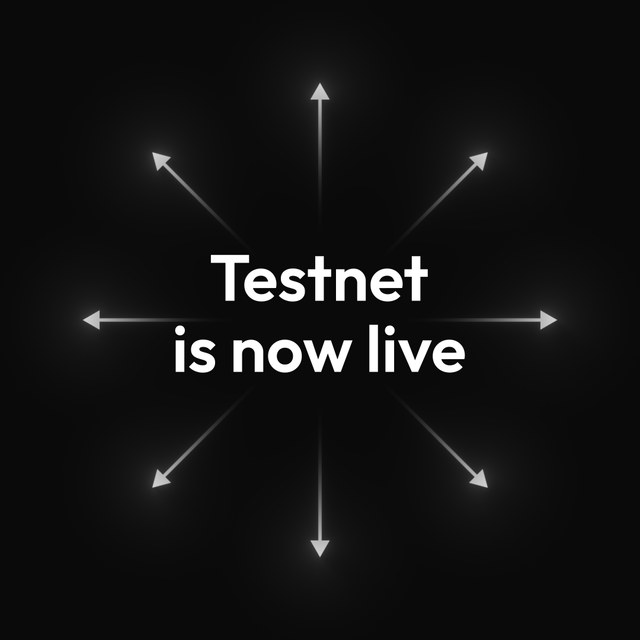Edinburgh Decentralization Index
Input Output Global has partnered with the University of Edinburgh to develop the blockchain industry’s first decentralization index. Its name will be the Edinburgh Decentralisation Index (EDI). Measuring the quality of decentralisation is more difficult than you might think....

Input Output Global has partnered with the University of Edinburgh to develop the blockchain industry’s first decentralization index. Its name will be the Edinburgh Decentralisation Index (EDI). Measuring the quality of decentralisation is more difficult than you might think. It is important for the whole sector to establish a fair measurement methodology and to continuously recalculate the results. The public, as well as authorities and regulators, will have an overview of the decentralization quality of the main blockchain networks.
TLDR
- Metrics will be defined by the university and continuously measured. From the results, a decentralization score will be compiled for each blockchain.
- The EDI Index will make it possible to track long-term trends and changes in decentralization.
- The EDI Index will allow us to preserve the most important features of blockchain technology.
Edinburgh Decentralisation Index (EDI)
The University aims to develop a framework for measuring decentralisation based on scientific research. The measurement methodology will be transparent. Results will be collected continuously and will be publicly available. The measurement will be carried out by a team from the University.
One of the objectives of the project is to provide information on the quality of decentralisation and the risk factors associated with it. One of the first steps will be to define the metrics that will be tracked and how the collected results will be compiled into an index.
There is already a Cambridge Bitcoin Electricity Consumption Index, which has become the most reliable and trusted indicator of Bitcoin mining energy consumption. Universities are independent and have no need to bias the results. In addition, they are able to make measurements of very high quality. The same can be expected from the EDI Index.
Why measuring decentralisation is important
There is currently no reliable source of information on the quality of the decentralisation of individual blockchains. Academic studies are emerging on the quality of security and decentralisation of the largest projects such as Bitcoin and Ethereum. They are produced irregularly and the public often does not even know about them.
EDI will make it possible to track long-term trends and changes in decentralization based on other factors such as market sentiment, changes in protocols, technological advances, and other external factors.
Tracking decentralisation will allow teams to compare different approaches that have been taken by other projects and gain important inspiration backed by data. If blockchain decentralization declines over time, teams can think about how to improve the situation. This is extremely important, as it will allow us to preserve the most important features of blockchain technology such as the distribution of consensual and decision-making power, censorship resistance, transparency and, last but not least, resistance to various attacks, whether external or internal.
The EDI Index may indicate tendencies towards the centralisation of power or the emergence of single points of failure. This can be observed at the level of geolocation, the concentration of resources used to distribute power, the production of hardware, etc.
Users will have reliable information on the quality of the decentralisation of individual networks. This is extremely important, as nothing but decentralization distinguishes blockchain from server-client solutions. This information will also be beneficial to third-party developers who will consider other parameters of blockchain networks such as scalability in addition to decentralization. As a rule of thumb today, when a blockchain is more scalable, it is less decentralized. But what if the team will be looking for the best blockchain for their solution that scales well while being as decentralized as possible? Teams do not have the capacity to investigate the quality of decentralization of individual blockchains, as it is a very time-consuming activity.
The EDI Index will also be useful for legislators, businesses, governments and regulators. When making laws, it can be useful to know where the boundaries of decentralisation are and where they end. From a certain level, a blockchain may be considered centralized and fall under a different category of regulation. If a company or government has clearly defined requirements for a decentralized network, they will have a pool of top candidates from which to choose what they need for their solution.
Why is it difficult to change decentralisation?
The quality of decentralisation is very difficult to measure and monitor in the long term. For PoW networks like Bitcoin, we have good information in terms of the number of block producers (pools), but it is difficult to get complete information about miners. We can easily find that the 3 largest Bitcoin pools have approximately 20% share of the block production. We know that the largest miners have a share of around 5% or even more. We know that roughly a year ago the top 50 miners controlled 50% of the hash rate. What we don't know, unfortunately, is how the situation has changed over the last year in the case of miners.
So far, we talked about data that can be obtained and analyzed. What is difficult is to objectively assess the quality of decentralisation based on the data. Some people believe that Bitcoin is not well decentralized because only 3 pools in the Bitcoin network have more than 50% share of the block production. Others counter that this is not a problem since miners can delegate the hash rate elsewhere at any time if pool operators behave inappropriately. And what role does the number of full nodes in the network play in decentralization?
The university team needs to assess all attack vectors. Attacks can be external, such as a well-known 51% attack, but also internal where individual actors collaborate in the attack. It is necessary to clearly define the relationship between pools, miners and full nodes in the context of different attacks, but also when deciding on a major protocol change (governance). To make matters worse, a good assessment of the power of the team and the presence of VC funds is necessary. Bitcoin is rumoured to have had no leader since Satoshi left the project. How much power does Blockstream hold with CEO Adam Back? EDI should answer that too.
In the case of PoS networks such as Cardano or Ethereum, data collection is a bit easier as it is available directly on the blockchain. We know that Cardano has over 3,200 registered pools (blocks are produced by about a third of the pools) and 1.2M stakers. It will be complicated (rather impossible) to find out who is the real owner of the coins at different addresses. For example, we know that there are 250 accounts holding over 20M ADA coins. What is impossible to know is if multiple accounts are owned by the same entity. Staking on centralized exchanges is another complex topic that the team will need to address.
EDI needs to give us a clear answer on which blockchain is the most decentralised and what its edge is over other projects. This can't be judged completely simply by comparing the numbers of block producers and delegators. It is important to examine the relationships between these groups in the context of potential attacks. Ethereum only supports validators (block producers) at the protocol level and has no built-in support for pools. However, pools do arise in the ecosystem.
The university team will have to become familiar with the details of each project, but at the same time will have to compare them with each other in a fair and objective way, i.e. according to clearly defined metrics. That's not going to be easy.
Conclusion
Debates on decentralisation across communities are accompanied by ideology and false beliefs instead of data and objective arguments. EDI can bring an academic approach and the power of an independent evaluator to this debate. The blockchain sector needs objective and reliable statistics. The winning project will set the bar for quality and other projects can strive to take the top spot. Decentralisation would benefit from this state of affairs.
Delegate Your Voting Power to FEED DRep in Cardano Governance.
DRep ID: drep12ukt4ctzmtf6l5rj76cddgf3dvuy0lfz7uky08jfvgr9ugaapz4 | We are driven to register as a DRep by our deep dedication to the Cardano ecosystem and our aspiration to take an active role in its development, ensuring that its progress stays true to the principles of decentralization, security, and community empowerment.DELEGATE VOTING POWER!








